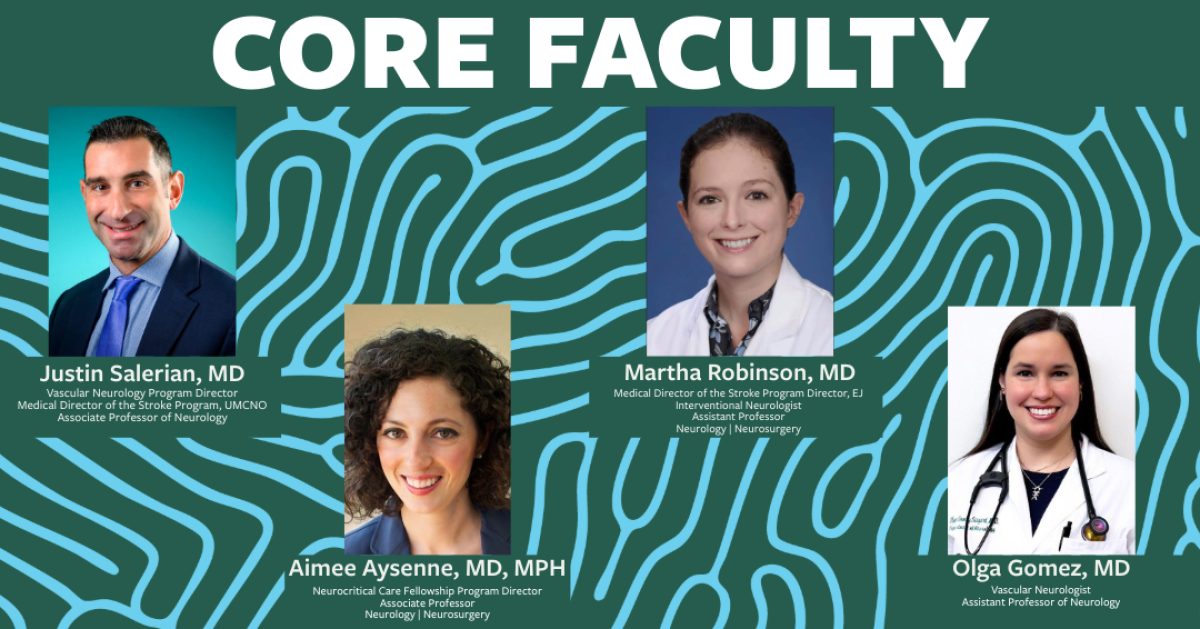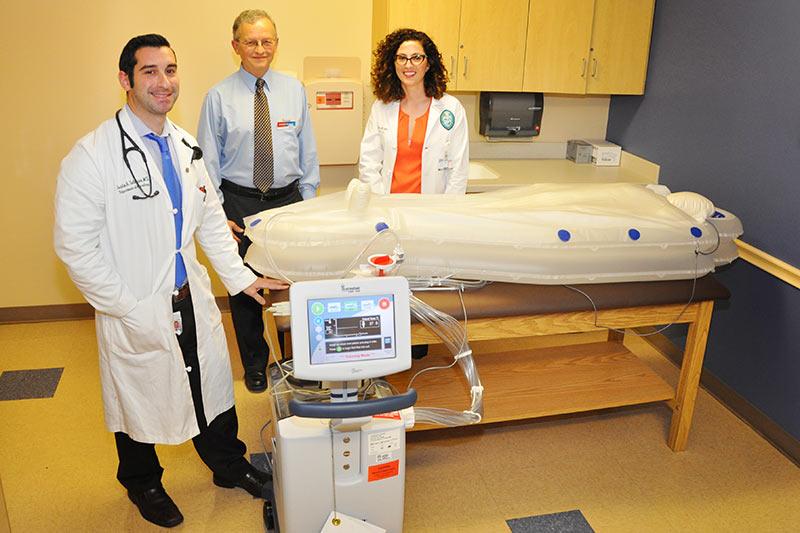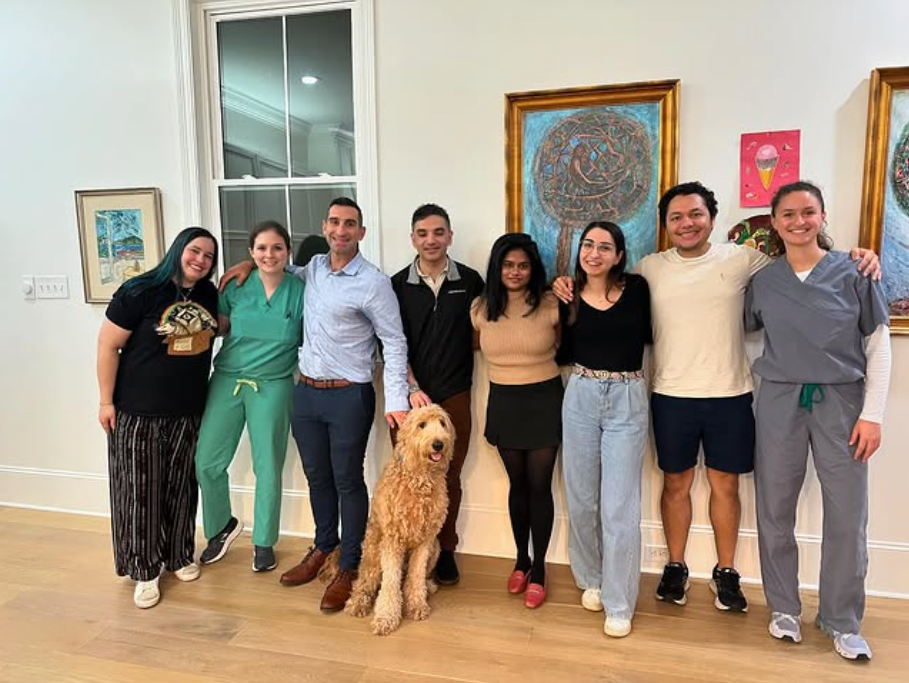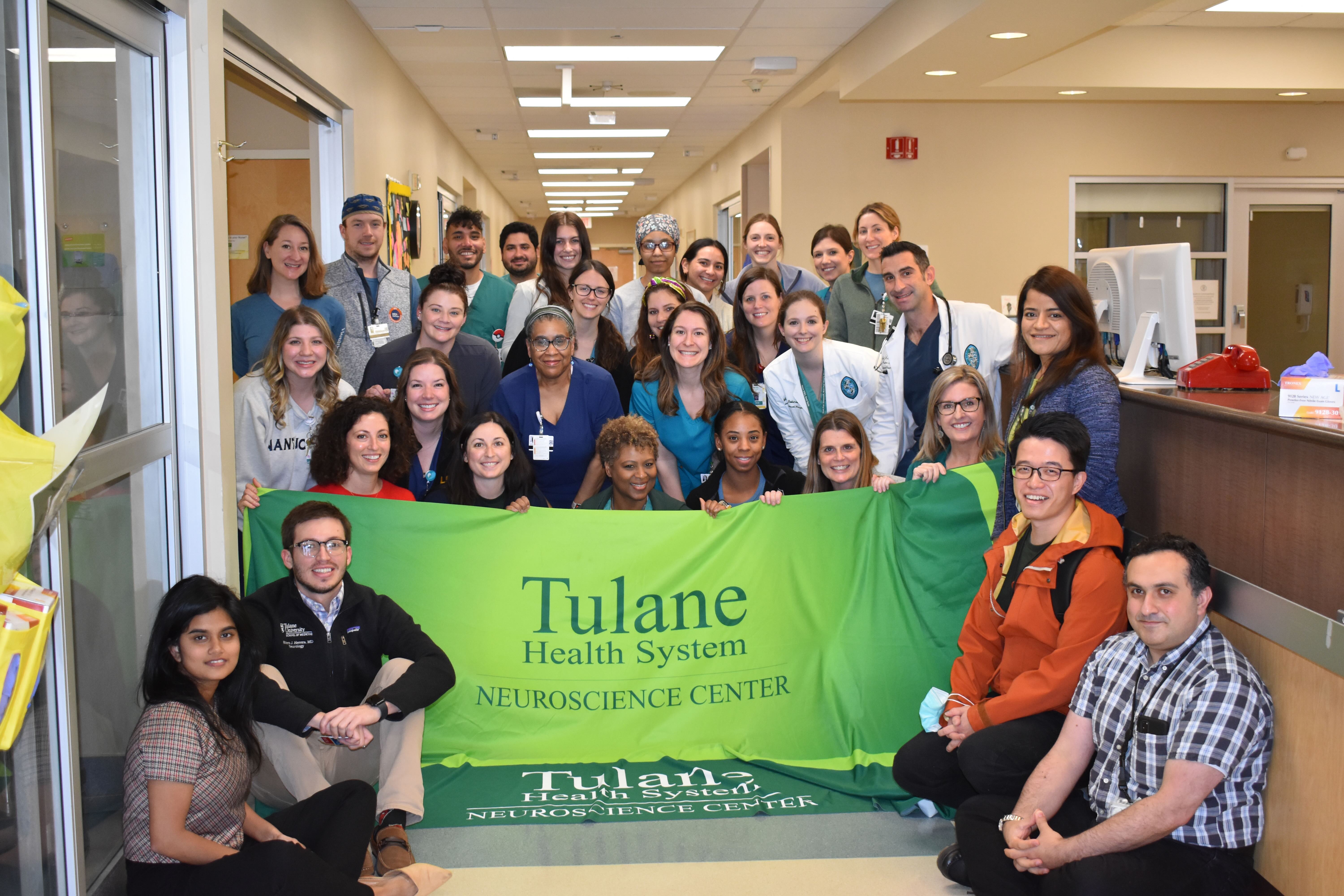Vascular Neurology Fellowship
Welcome to the Tulane University fellowship program in Vascular Neurology.

Tulane Stroke Program was the first comprehensive stroke center designated in Louisiana and has had an enormous impact on the health of our region through first-class patient care, medical education, and innovative stroke research. The focus of the fellowship is to develop leadership and expertise within vascular neurology, capable of expanding stroke care further throughout the country. We proudly offer a one-year ACGME-accredited Vascular Neurology Fellowship.
Program Highlights
Overview
The stroke fellow will have broad clinical exposure to the most complex cerebrovascular cases in our region, which is the heart of the “stroke belt” in the United States. The trainee will care for patients at two large academic stroke centers in New Orleans, each with dedicated Neuro-Intensive Care Units totaling 28 beds.
The stroke service at University Medical Center (UMC) in downtown New Orleans, sees over 1300 stroke activations a year, staffed by one attending, one fellow, multiple neurology residents and medical students. UMC has a primary stroke service that takes care of patients from the emergency department through discharge. UMC has 440 beds, and employs 700 physicians. In addition to being a high-volume stroke center, it is a level one trauma center, hyperbaric medicine center, and houses a prison for incarcerated patients. These capabilities ensure an enriched training environment that serves a diverse, most vulnerable patient population with unique pathology.
Neurocritical care core rotations are completed at East Jefferson (EJ) Hospital in Metairie, Louisiana-10 miles outside the city center. There is one attending, one neurocritical care fellow, neurology residents and medical students on this NCC service at any given time. EJ is a comprehensive stroke center, the flagship hospital of Tulane School of Medicine, and is the hub of our telestroke network.
Telestroke
Neurodiagnostics
Academics, Didactics, and Research
Neuro-Interventional and Other Electives
Outpatient / EMG-guided Botox
Tulane Stroke Program provides stroke care through our telestroke network, spanning over 200 miles throughout Louisiana to the border of Texas and throughout southern Mississippi at over 20 hospitals. Fellows are regular participants on this service, which sees over 3,200 telestroke activations a year and maintains some of the highest lytic treatment rates in the region.
Stroke fellows gain proficiency in interpretation of advanced imaging modalities such as CT angiography, CT Perfusion and MRI. Fellows get further training in neuro-vascular sonology; Interpretation of transcranial dopplers (TCDs) and carotid ultrasound (CUS) and are funded to attend Wake Forrest neuro-vascular ultrasound course.
Stroke fellows teach residents and medical students in both clinical and didactic settings. Once a month the fellow lectures on a vascular neurology sub-topic such as “Stroke in the Young” or “Intracranial Athersclerotic Disease.” There is an attending-led weekly neuro-vascular case conference that highlights a challenging, rare or complex case.
The fellows have opportunity to participate in stroke clinical trials, retrospective research or QI projects. The fellows are funded to participate in one academic stroke conference a year such as the International Stroke Conference.
Through partnership with neurosurgery, Tulane stroke fellows have the opportunity to electively rotate with our neuro-IR team. There is an informal two-year Neuro-IR fellowship pathway available on a case by case basis.
Neuro-radiology and Neuro-rehab electives are also available.
There is a dedicated stroke-fellow clinic one half-day per week, focusing on secondary stroke prevention and providing long term patient continuity. Additionally, the fellow has the opportunity to train in EMG-guided botulinum toxin injections for post-stroke spasticity.
Drs. Salerian and Aysenne testing a novel device for therapeutic hypothermia in acute stroke patients.
Stroke journal club at Dr. Salerian’s house with the core faculty, the stroke fellow, residents, APP, and the official stroke dog, Monty.
The Neuro-ICU team on the last day at Tulane Medical Center prior to transitioning to our new homes at UMC and EJ.

Contact Us to Apply

Vascular Neurology Fellowship
Catherine Rigby
Senior Section Administrator, Neurology
Phone: 504-988-2348
Email: crigby@tulane.edu



